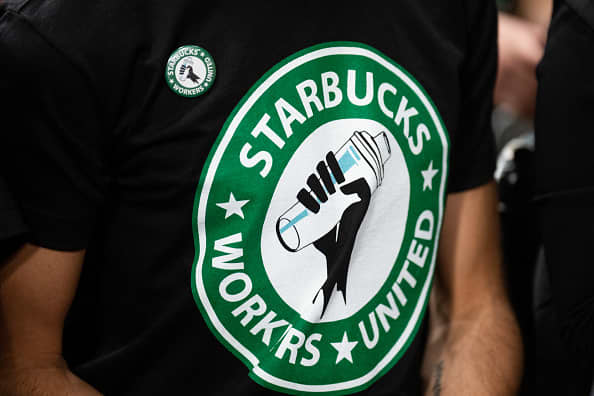The Southern California health inspector held responsible for a deadly massacre in San Bernardino may have ties to people who have "expressed jihadist-oriented views," authorities told NBC News on Thursday.
Syed Rizwan Farook, 28, and his wife, Tashfeen Malik, 27, are accused of killing 14 people and injuring 21 others at the Inland Regional Center in San Bernardino, where Farook's colleagues with the San Bernardino County Department of Public Health were renting space for a celebration.
Farook, who worked for five years as a restaurant inspector for the county health department, appeared to have been radicalized and had contact with "persons of interest" both in the Los Angeles area and overseas, according to NBC News.
Citing a U.S. intelligence source, the Associated Press reported Thursday that Farook used social media to communicate with extremists under observation by the FBI. The official said investigators are still working to determine whether Farook was in contact with any foreign terrorist organization.
The deadly rampage unfolded Wednesday after Farook left a holiday party at the Inland Regional Center "under some circumstances that were described as angry," according to San Bernardino Police Chief Jarrod Burguan. The shooting started 10 to 30 minutes later.
"They sprayed the room with bullets. I don’t know that there was anyone they specifically targeted. They killed 14 people there," Burguan said during a news conference Thursday.
The couple died about four hours later in a gunbattle with police who pursued their rented Ford Expedition through a residential community in nearby Redlands. Two law enforcement officers involved in the shootout suffered minor injuries.
U.S. & World
Farook and Malik were married and had a 6-month-old daughter. An online baby registry for Farook and Malik listed four items: diapers, a car seat, baby wash and safety swabs, according to NBC News, which could not immediately verify the registry's authenticity.
Federal authorities told NBC News that Farook, an Illinois native, and Malik, born in Pakistan, were married two years ago. Officials believe the pair met when Farook traveled to Saudi Arabia, likely for the Muslim hajj, or pilgrimage to Mecca. Malik traveled to the U.S. on a fiancee visa soon after. The couple's daughter was born in May.
The Saudi embassy in Washington, D.C., said Thursday that Farook also spent nine days in Saudi Arabia in the summer of 2014, NBC News reported.
Divorce papers indicate Farook may have come from a broken family, according to The Associated Press, which describes his parents' "acrimonious split" in 2006. Records show Farook's mother accused his father of being "irresponsible, negligent and an alcoholic" and attacking her in front of the couple's children. She filed a no-contact domestic violence protection petition in July of that year.
Farook's co-worker, Patrick Baccari, said he and Farook had been sitting at the same table at the holiday party before Farook allegedly opened fire. He told The Associated Press employees were taking a break before snapping group photos when Farook disappeared, leaving a jacket draped over his chair. Baccari stepped out to the bathroom when he heard explosions.
"I'm getting pelted by shrapnel coming through the walls," he said. "We hit the ground."
The shooting lasted about five minutes, he said, and when he looked in the mirror he realized he was bleeding. He was hit by fragments in the body, face and arms.
"If I hadn't been in the bathroom, I'd probably be laying dead on the floor," he said.
Baccari said Farook was raised on a farm with goats and chickens, was reserved, rarely starting a conversation on his own. Several months ago Farook grew out his beard. He appeared committed to his family, and never displayed any unusual behavior or discussed any radical political views.
Co-workers told the Los Angeles Times Farook was a devout Muslim but didn't talk about religion at work. Griselda Reisinger, who worked with Farook before leaving her job in May, told the Times he "never struck me as a fanatic, he never struck me as suspicious."
Farook's brother-in-law, Farhan Khan, said Wednesday night he could not understand what might have led to the deadly rampage. He was speaking at a news conference before he had received confirmation Farook was a suspect.
"I have no idea why he would do something like this. I have absolutely no idea," said Khan, who is married to Farook's sister. "I am in shock."
Hussam Ayloush, executive director of the Council on American-Islamic Relations, said Farook's family is originally from Pakistan and that Farook was born in Illinois and raised in Southern California.
He said the couple had taken the child to a grandmother's home Wednesday morning, telling her they had some sort of a doctor's appointment and needed her to care for the child, Ayloush said. By the afternoon, the grandmother apparently became concerned Farook was among the victims when neither he nor his wife answered their phones.
The family began to piece together the events hours later when a reporter called with questions, Ayloush said.
"We don't know the motives. Is it work, race-related, is it mental illness, is it extreme ideology? At this point, it's really unknown to us and at this point it's too soon to speculate," Ayloush said.
Authorities also have been mum on a possible motive. David Bowdich, assistant director of the FBI bureau in Los Angeles, said Thursday "it would be irresponsible" and "way too early to speculate on a motive."
The Associated Press contributed to this report.



